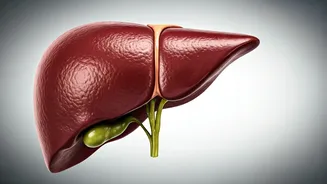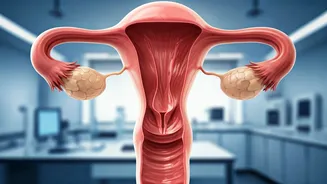Understanding Liver Health
The liver is a powerhouse, carrying out hundreds of critical functions, including detoxification, producing bile, and storing energy. It's constantly working
to filter harmful substances from your blood. However, the liver can be easily damaged by various factors, and understanding these is crucial for maintaining good health. Daily habits significantly influence liver health, making it necessary to be mindful of what you consume and how you live. The liver’s ability to regenerate means it can repair itself to some extent, but prolonged or severe damage can lead to serious conditions like cirrhosis and liver cancer. A healthy liver is essential for overall well-being. Knowing the daily habits that can undermine its function is a crucial step toward ensuring its long-term health.
Habits That Damage
Several daily routines can contribute to liver damage, even without any evident symptoms. Excessive alcohol consumption is a major risk factor, as the liver struggles to process large amounts of alcohol, leading to inflammation and potential scarring. A poor diet filled with processed foods, excessive sugar, and unhealthy fats also strains the liver, contributing to non-alcoholic fatty liver disease (NAFLD). Certain medications, both prescription and over-the-counter, if taken in excess or combined inappropriately, can put significant stress on the liver. Lack of exercise and a sedentary lifestyle, combined with a lack of exercise, are also linked to liver damage, as they can contribute to obesity and metabolic syndrome, further affecting liver health. These factors increase the risk of serious liver conditions.
Lifestyle Factors
Beyond diet and alcohol, lifestyle choices play a significant role in liver health. Regular exercise is vital, as it helps maintain a healthy weight, improves insulin sensitivity, and reduces the risk of NAFLD. Stress management is also important, as chronic stress can influence eating habits and overall health, indirectly impacting the liver. Regular medical check-ups and screenings are essential for detecting any potential liver issues early on, allowing for timely intervention. Ensuring you're up-to-date with vaccinations, such as those for hepatitis A and B, can protect your liver from viral infections. Practicing safe sex and avoiding sharing needles can also protect against infections that harm the liver, such as hepatitis C.
Foods to Avoid
Certain foods can worsen liver health and should be consumed sparingly or avoided. Excessive consumption of sugary drinks and processed foods loaded with fructose can contribute to fatty liver disease. High intake of saturated and trans fats, often found in fried foods and processed snacks, can also stress the liver. Limiting the consumption of red meat and processed meats is also a good idea, as these can increase the burden on the liver. High sodium intake, typically present in many processed foods, can cause liver inflammation and fluid retention. If you take any medication, or supplements it is crucial to always follow the recommended dosages and consult your doctor about any potential side effects and interactions that might affect your liver health.
Promoting Liver Health
Adopting habits that support liver health can significantly improve your overall well-being. Consuming a balanced diet rich in fruits, vegetables, and whole grains provides essential nutrients and antioxidants that support liver function. Staying hydrated by drinking plenty of water helps the liver flush out toxins. Regular physical activity, such as brisk walking, jogging, or swimming, improves liver health by helping in weight management and reducing fat accumulation in the liver. Incorporating liver-friendly foods like green tea, coffee (in moderation), and cruciferous vegetables such as broccoli and kale into your diet can boost your liver's ability to function efficiently. Moderating alcohol consumption or avoiding it altogether is one of the best choices to make to promote the well-being of your liver and overall health.











